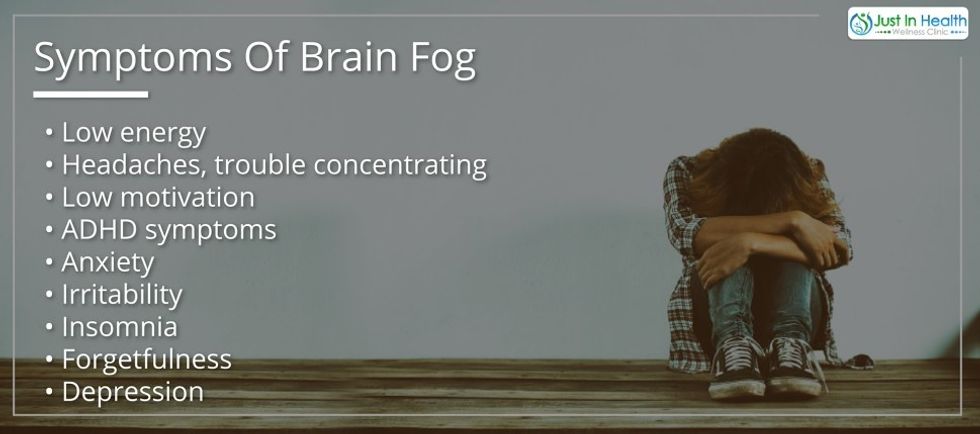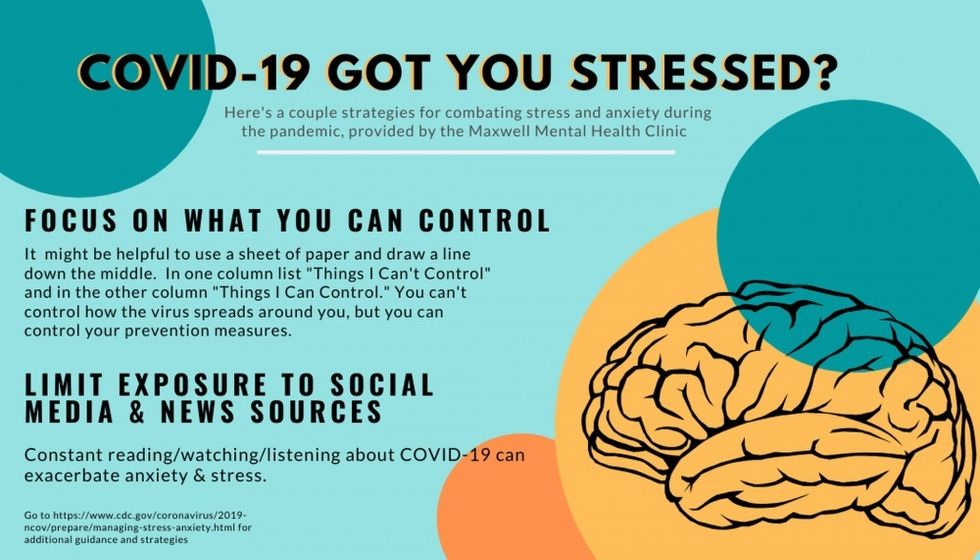Brain Fog: What It Is and Why It’s Worse During the Pandemic
Do you constantly feel like you’re walking through the foggy streets of London, even when it’s sunny out?
Does your life feel like one long scene from Blade Runner, a slideshow of plumes of smoke cut through with a few dreary neon lights? You might be suffering from brain fog.
What Is Brain Fog?
“Brain fog” is a condition that affects focus, memory, and mental clarity. It’s not a medical condition, though it can be a symptom of another problem like anemia, depression, gluten intolerance, diabetes, hyperthyroidism, dehydration, or living through a global pandemic.
In general, brain fog leads to feelings of fuzziness and detachment. It can lead to poor focus, forgetfulness, and difficulty concentrating, among other symptoms. If you’re suffering from very serious, prolonged brain fog or if you have other symptoms, you could get blood work done to detect abnormal glucose levels, kidney failure or other issues, or you could get tested for ADHD, depression, or other ailments.
But in all likelihood, your current brain fog is a symptom of situational stress, and the best doctor will only prescribe you the cures you already know about: Get more sleep, exercise, spend time in the sun, eat a balanced diet, perhaps try meditation; avoid alcohol and caffeine; do something enjoyable, jump around a bit, eat some protein and vegetables. Cut out sugar. Take some time away from screens and stop multitasking so much. Take some vitamin D. Drink water.
Also, give yourself a bit of a break, because these are overwhelming times. Brain fog is a symptom of stress or burnout, which is something that we’re all experiencing—albeit on vastly different scales—during the coronavirus pandemic.
Brain Fog, Collective Trauma, and the “Fight or Flight” Response
“In times of chronic stress, our brains habituate to the ‘fight or flight’ response,” writes Molly Colvin for wbur.org. “Our hearts may not race all of the time, and we may not notice that our muscles are tight or that sleep has become more elusive. Our awareness of worries may fade, but they continue to capture our attentional resources, making it harder to concentrate and fully observe our environment. At the same time, we may be more distractible, jumping from one thing to the next, unknowingly searching for signs of threat. Some incoming information will be missed, creating little holes in our everyday memory. We may make errors in decision-making or become stuck in old thought patterns. Brain fog creeps in quietly and insidiously.”
The pandemic is all around us, a constant threat that’s destroying lives and killing thousands. Because of this, because of less time moving around outside or because of loneliness or excessive screen time or insomnia or poor diet or sheer terror or a combination of all of these things or far worse things, many, many people are currently suffering from brain fog and intense exhaustion. It’s like we’re all wandering around in a huge dense storm, pretending like we’re fine while we can’t see our hands in front of our faces.
“Do you want to know why you feel so tired, even though your daily activity load is decreased?” wrote one Twitter user. “It’s a trauma response. Because you can’t fight the virus actively, and because you can’t run away from it, your body is going into ‘play dead’ mode. It’s common in those who experienced ongoing trauma in their childhoods, and it’s happening now: we’re powerless, fight or flight is out, so the only coping strategy left is avoidance. So be kind to your body who needs a few extra naps right now. You’re processing a lot, even if it isn’t consciously. Be active when you can, but don’t force it. You’re coping and you’re healing.”
Trauma and acute stress affects humans in many different ways, often manifesting in the body and recurring in the future. This is why movement and attention to physical needs can be so helpful in combating a brain fog that feels insurmountable when you’re sitting frozen on the couch. But the consequences of brain fog can make it difficult to move, creating loops of dysfunction that will be familiar to anyone who’s suffered from depression or PTSD in the past.
“That deep sense of change and uncertainty is highly disturbing to our psyche and at the simplest level it presents itself via increased anxiety, which often is displayed through difficulty focusing and sleeping,” says Dr. Paraskevi Noulas, Psy.D., psychologist and clinical assistant professor in the Department of Psychiatry at NYU Langone Health.
Deeper Implications of Brain Fog
All of our routines have been interrupted, and many people are having to deal with incredibly stressful threats to their very livelihoods. Feelings of grief, guilt, anxiety, loneliness or stress are “are all normal reactions to an abnormal situation. And you are not alone in feeling them,” says counselor Dawn Ascanio, who advises people to allow themselves to feel their emotions during this time instead of suppressing them. “You may feel you are on an emotional roller coaster right now. But that is normal, too.”
So if you feel like your brain is a piece of Swiss cheese, or as tangled-up as a teenager’s headphones, know you’re not alone.
Regardless, don’t blame or criticize yourself for what you’re feeling. At the current moment, feelings of grief and shock could be acts of political protest, argues scholar Judith Butler in an interview for Truthout.
“With public losses of this magnitude and quick succession, there are political questions that are linked with the demand for public mourning: Why were health facilities so badly underfunded and unprepared? Why did the president disband the committee tasked with preparations of pandemics of this kind? Why are there not enough beds or ventilators? Why are Black people, incarcerated people and migrants more at risk of dying than those who have been afforded decent health care for years?” she asks. “All these lost lives are grievable, which means that they are lives worthy of acknowledgment, equal in value to every other life, a value that cannot be calculated.”
For those who have lost loved ones or who have lost their jobs and can’t buy food or healthcare, this is a full-on disaster that will have the consequences of full-on trauma. All this is also revealing holes that have always existed in our world, holes that we’ve been patching up over and over to try and stop the flood that will inevitably come.
So to grieve right now—to refuse to tamper down your emotions, to refuse to function as normal—might be an extremely appropriate physical reaction to these times. You’re not a robot and this is a pandemic, so go you, you foggy-brained normal person. Maybe instead of trying to blast your brain fog into blue skies, try taking a walk in the fog. See what shadows emerge, or what new worlds might be glowing in the distance.
 Robert Frost
Robert Frost





